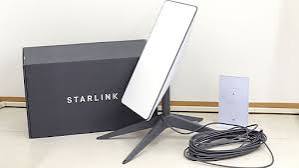South Africa’s communications regulator, Icasa, announced on Wednesday a decisive crackdown on the country’s unauthorised use of Starlink satellite internet services.
Some users have been utilising the service by importing equipment through local or international resellers and exploiting its international roaming feature, even though Starlink does not have an official license to operate in South Africa.
The measure shows Icasa’s opposition to “unlawful” service offerings in the country.
Icasa enforces licensing rules amid Starlink controversy
Starlink, owned by Elon Musk’s SpaceX, has been at odds with South African authorities over licensing requirements. Icasa mandates that any telecommunications licensee must have at least 30 percent ownership by historically disadvantaged persons, a condition Starlink has not met.
This regulatory impasse has not stopped some South Africans from purchasing Starlink kits, which cost around R15,000 plus monthly fees for roaming, to access high-speed satellite internet despite the lack of formal authorization.
In its statement, Icasa expressed “serious concern” over reports that Starlink may offer services without the necessary approval. The regulator has published a general notice under Government Gazette no 49777, reminding all entities providing electronic communications services in South Africa to comply fully with existing laws. Icasa has also formally engaged SpaceX to clarify these activities and is awaiting a response.
Meanwhile, a formal investigation has been launched to verify the allegations and collect evidence, with the public and industry stakeholders encouraged to assist by submitting relevant information.
Icasa has deployed inspection teams to conduct physical verifications in areas where unauthorised Starlink use was reported. The operation is coordinated with other government bodies to ensure a lawful response.
Icasa chairperson Mothibi Ramusi warned that if breaches are confirmed, the authority will consider enforcement actions, including lodging complaints with international bodies like the International Telecommunication Union.
Starlink’s roaming service and South African users’ predicament
Starlink’s international roaming feature has allowed South African users to access the service by registering in countries where Starlink is licensed and then using the service locally.
However, Starlink has cautioned users that these “Mobile – Regional” plans are intended only for temporary travel or transit, not permanent use outside the registered country.
In April 2024, Starlink sent emails warning South African users that their access would be terminated by the end of the month due to terms and conditions violations.
Despite these warnings, many users continued to rely on Starlink’s high-speed internet, attracted by its promise of connectivity in underserved areas. However, Icasa’s recent crackdown and the ban on importing Starlink kits by local ISP IT Lec have intensified the pressure on users.
Icasa instructed IT Lec to stop acquiring, distributing, and facilitating Starlink products within three days of receiving the notice, effectively cutting off this workaround for South African customers.
Regulations remain difficult for Starlink’s official launch. Icasa will not finish its Satellite Services Framework to simplify LEO satellite operator licensing until November 2025. Meanwhile, competitors like Eutelsat OneWeb have licenses and cooperate with local enterprises in South Africa.
This enforcement action by Icasa underscores the regulator’s uncompromising position on compliance and highlights the ongoing tension between innovative satellite internet services and national regulatory frameworks in South Africa.
















